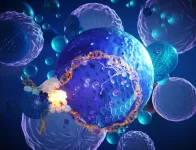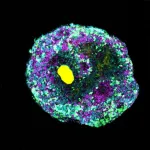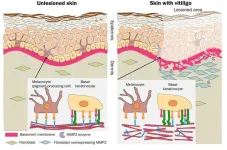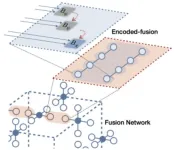(Press-News.org) CHAMPAIGN, Ill. — According to two psychologists, the field of psychological science has a problem with the concept of self-control. It has named self-control both a “trait” — a key facet of personality involving attributes like conscientiousness, grit and the ability to tolerate delayed gratification — and a “state,” a fleeting condition that can best be described as willpower. These two concepts are at odds with one another and are often confused, the authors report.
“Self-control is a cherished quality. People who have lots of it are celebrated and seen as morally righteous,” wrote University of Toronto psychology professor Michael Inzlicht and University of Illinois Urbana-Champaign psychology professor Brent Roberts in a review in the journal Current Opinion in Psychology. Many studies find that people who score highly on various measures of conscientiousness do better than their peers academically and financially and tend to live healthier lives.
This led psychologists to conflate momentary willpower with the other characteristics that make conscientious people successful, the researchers said.
“We assumed that highly conscientious people simply engage their willpower more often than their less-conscientious peers,” Roberts said. “But this is not the case. Conscientious people do not control themselves more than others. In fact, studies have shown that they spend less time restraining wayward desires. This was a surprise when it was discovered more than a decade ago.”
The misguided emphasis on willpower led to interventions designed to increase it, with the goal of also strengthening conscientiousness. This approach occasionally yielded some positive short-term results, the researchers said. But in the long term, such changes tend to erode.
“People usually revert to their baseline levels of willpower and conscientiousness,” Inzlicht said. “Willpower is generally fragile, unreliable and weak.”
The science strongly suggests that other aspects of “trait self-control” are more likely to contribute to the lifelong benefits associated with this trait, Inzlicht said.
“Perhaps it’s their industriousness or organizational skills,” he said. “Or maybe it’s their ability to persist in pursuit of a goal.”
“We wonder if we should abandon the term ‘self-control’ when referring to traits and instead refer to conscientiousness,” the researchers wrote. “Consider the alternative universe if we had settled on the name ‘planfulness’ or ‘consideration of future consequences.’”
“Success in life might be the result of engaging less in day-to-day willpower and more in cold calculation before a temptation is ever met,” they said. “Maybe conscientiousness is explained not by exerting willpower, but by avoiding the need to exert it in the first place.”
Ultimately, Inzlicht and Roberts wrote, they aim to “highlight the need for a broader conceptualization of self-control in psychological research and interventions.”
Roberts also is an affiliate of the Carl R. Woese Institute for Genomic Biology at the U. of I.
The Social Sciences and Humanities Research Council of Canada and the Natural Sciences and Engineering Council of Canada supported this work.
Editor’s notes:
To reach Michael Inzlicht, email Michael.inzlicht@utoronto.ca.
To reach Brent Roberts, email bwrobrts@illinois.edu;
The paper “The fable of state self-control” is available online.
DOI: 10.1016/j.copsyc.2024.101848
END
The lead article in the current issue of The Criminologist, written by Nancy Rodriguez, University of California Irvine professor of criminology, law and society, shines a light on the lack of prison violence metrics that could help advance safety.
“For the 800,000 persons currently confined and the 200,000 state and federal correctional officers who work within U.S. prisons, the threat of violence is a routine feature of daily life,” she writes. “Accounts from incarcerated persons and staff detail the ever-present threats ...
Ikoma, Japan – One of the most fascinating discoveries in biology is that cells have mechanisms for dynamically regulating genetic expression. This ability to promote or restrict the transcription of specific genes without altering the DNA sequences themselves is essential to all forms of life, from single-cell organisms to the most complex plants and animal species.
While our understanding of these so-called epigenetic mechanisms is far from complete, remarkable progress has been made in this field with the understanding of the role of the Polycomb Repressive Complex 2 (PRC2). PRC2 is a protein that, in many plants, binds to specific DNA sequences called polycomb ...
Inventors and researchers have been developing robots for almost 70 years. To date, all the machines they have built – whether for factories or elsewhere – have had one thing in common: they are powered by motors, a technology that is already 200 years old. Even walking robots feature arms and legs that are powered by motors, not by muscles as in humans and animals. This in part suggests why they lack the mobility and adaptability of living creatures.
A new muscle-powered robotic leg is not only more energy efficient than a conventional one, it can also perform high jumps and fast movements as well as detect and react to obstacles – ...
Molybdenum (Mo) carbides, known for their unique electronic and structural properties, are considered promising alternatives to noble metal catalysts in heterogeneous catalysis. However, traditional methods for preparing Mo carbides suffer from complex processes, stringent synthesis conditions, challenging crystal regulation, and high energy consumption. Additionally, Mo carbides are susceptible to oxidation and deactivation, which poses a significant barrier to their widespread application.
In a study published in Nature Chemistry, a research group led by Prof. SUN Jian from the Dalian Institute ...
For more information, contact:
Nicole Fawcett, nfawcett@umich.edu
EMBARGOED for release at 5 a.m. ET Sept. 9, 2024
Researchers identify factor that drives prostate cancer-causing genes
Factor previously known to play a role in advanced cancer is fundamental in early stages of cancer development
ANN ARBOR, Michigan — Researchers at the University of Michigan Health Rogel Cancer Center have uncovered a key reason why a typically normal protein goes awry and fuels ...
A new molecular engineering technique can precisely influence the development of organoids. Microbeads made of specifically folded DNA are used to release growth factors or other signal molecules inside the tissue structures. This gives rise to considerably more complex organoids that imitate the respective tissues much better and have a more realistic cell mix than before. An interdisciplinary research team from the Cluster of Excellence “3D Matter Made to Order” with researchers based at the Centre for Organismal Studies and the Center ...
In hospital operating rooms and intensive care units, propofol is a drug of choice, widely used to sedate patients for their comfort or render them fully unconscious for invasive procedures.
Propofol works quickly and is tolerated well by most patients when administered by an anesthesiologist. But what is happening inside the brain when patients are put under and what does this reveal about consciousness itself?
Investigators at U-M who are studying the nature of consciousness have successfully used the drug to identify the intricate brain geometry behind the unconscious state, offering an unprecedented ...
New research suggests that a family member’s cancer diagnosis may increase first-degree relatives’ and spouses’ risks of developing psychological and cardiovascular illnesses. The findings are published by Wiley online in CANCER, a peer-reviewed journal of the American Cancer Society.
Having a family member diagnosed with cancer can be a stressful and traumatic experience for the entire family. Because stress influences not only mental health but also cardiovascular health, investigators explored whether a cancer diagnosis contributes ...
Skin pigmentation disorders affect people across the world. One of them, vitiligo, is said to have a worldwide incidence of 1-2%. What causes the loss of pigmentation in vitiligo has long been unclear, but an Osaka Metropolitan University-led team has uncovered clues to the mechanism behind the disorder.
In findings published in The Journal of Pathology, Graduate School of Medicine Specially Appointed Associate Professor Lingli Yang, the corresponding author, and researchers including Specially Appointed Professor Ichiro ...
Solving the problem of error is essential for the practical application of quantum computing technologies that surpass the performance of digital computers. Information input into a qubit, the smallest unit of quantum computation, is quickly lost and error-prone. No matter how much we mitigate errors and improve the accuracy of qubit control, as the system size and computation scale increase, errors accumulate and algorithms become impossible to perform. Quantum error correction is a way to solve this problem. As the race for global supremacy in quantum technology intensifies, most major companies and research groups leading the development of quantum ...









